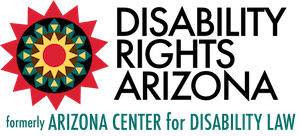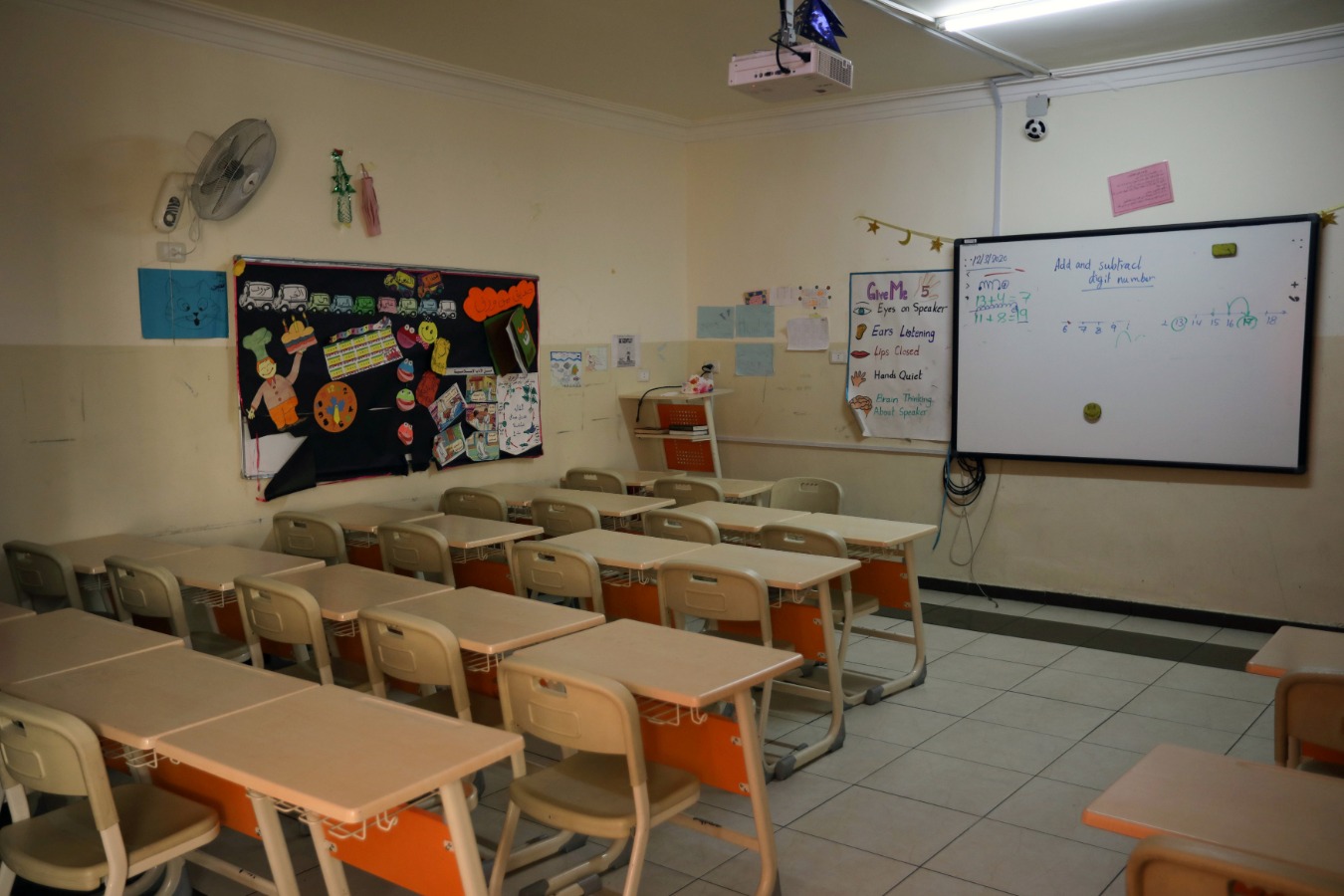This is the third in a series of blog posts on the Arizona Center for Disability Law’s website about school reopenings during COVID-19. If you haven’t had a chance to read the first two posts in the series, check them out: Post 1 and Post 2.
Today’s post will provide information for families about the different schooling options that exist for students with disabilities during COVID-19.
At this time, all Arizona families have access to the same school choice options they would normally have, in addition to some additional options that may be provided by their specific school district or charter school. The information below is general information about the options that exist to help you make an informed decision about how your child will learn in the fall.
- Public School District
Parents can choose to enroll their child in their local public school district or to pursue open enrollment to enroll their child in a public school district other than the one in which they reside.
Students with IEPs who are enrolled in public school districts are entitled to receive the special education and related services listed in their IEPs. The public school district of enrollment is responsible for providing those services. Although school districts will not be providing in-person learning at the beginning of the 2020-2021 school year, students with IEPs are entitled to receive the services in their IEPs during remote learning to the extent safe and feasible. Students with disabilities who cannot receive a free appropriate public education (FAPE) through distance learning are entitled to receive in-person services through on-site learning opportunities. See our previous post on executive orders for more information.
During distance learning, your child is entitled to continue to receive educational services in the Least Restrictive Environment (LRE) appropriate to meet his/her needs. Your child’s LRE placement does not need to be changed for your child to receive FAPE in a remote setting. Instead, the school district should strive to serve students in a remote setting that mirrors their in-person LRE. For example, if your child’s LRE is a Level A (80% or more of the school day spent in a regular classroom alongside non-disabled peers) then during remote learning your child should also spend at least 80% of the school day using regular education learning platforms and virtually interacting with non-disabled peers. For more information about LRE and placement during remote learning, see this resource from the Arizona Department of Education.
When it is safe to offer in-person learning, many school districts will be offering families a choice between continuing remote learning or beginning in-person learning. To plan for staffing and space needs, most districts are asking families to commit to one learning model or the other for a set amount of time (for example, committing to remote learning until the end of the semester in December 2020, and then deciding whether to continue with remote learning or switch to in-person learning for the spring 2021 semester). If you choose to have your child return to in-person learning, your child’s IEP will need to be followed in the classroom just as it was before the pandemic.
When it is safe for schools to begin offering in-person learning, if you indicate that you would prefer for your child to continue with remote learning, the school may want to have an IEP meeting for your child to determine whether FAPE can be provided in a remote setting. It is possible, based on guidance being issued by the Arizona Department of Education, that your child’s IEP team may determine that your child can only be provided FAPE in an in-person setting. The school may then state that it will only follow your child’s IEP if you choose to send your child to school in-person, and will not attempt to follow your child’s IEP if you elect to continue remote learning for your child. If you disagree with this or any other decision made by your child’s IEP team, you can engage in dispute resolution. Such an ultimatum from your child’s IEP team may be challenged, especially if your child has a documented medical condition that makes returning to in-person school especially high-risk.
If you believe that, for disability-related reasons, your child’s LRE has changed, you can request that the IEP team consider amending your child’s IEP to reflect a home-based instruction placement. If the LRE is changed to home-based instruction, the District must follow your child’s IEP by providing services to your child in your home. IDEA requires all qualifying students to be provided the amount of services necessary to provide FAPE, regardless of their LRE.
ACDL has noticed that students whose LRE is home-based instruction are typically provided far fewer hours of services than students in in-person settings, because the cost of providing home-based services to an individual student is much higher than the cost of providing services to a classroom full of students. Generally, students are offered four hours of home-based instruction per week. This probably has less to do with an individualized determination about how much home-based instruction is needed for a child to receive FAPE, and more to do with the cost of providing home-based services. In Arizona, to count as a full-time student for school funding purposes, a school must provide a minimum of four hours per week of home-based instruction to a student. Choosing home-based instruction may mean that your child will be offered about four hours of services per week. If you disagree with the amount of services being offered to your child in a home-based instruction placement, you can use dispute resolution. For more information about home-based instruction, see this resource from the Arizona Department of Education.
- Public Charter School
Parents can choose to enroll their child in a public charter school. Public charter schools are free to attend, do not serve a specific geographic area, and cannot discriminate in enrollment on the basis of disability. Because some charter schools are in high demand, they may operate on a lottery system for enrollment. If you are interested in sending your child to a charter school, make sure you understand how the charter’s enrollment process works.
Public charter schools are subject to IDEA and orders from the Arizona Governor’s Office, just like public school districts. Like public school districts, most public charter schools will be offering remote learning only for the first part of the school year and may begin to offer in-person learning options later in the year. Like public school districts, public charter schools must provide qualifying students with the services detailed in their IEPs.
Each option discussed above relating to public school districts also applies to public charter schools. Some public charter schools have been operating in an online-only format since before the pandemic, and are self-described as online schools. Even these online schools are required to follow IDEA and provide students with the services in their IEPs.
- Homeschooling/Private School/ESA
In light of COVID-19, many families are considering removing their children from the public school system all together to pursue homeschooling, enrollment in a private school, and/or applying for an Empowerment Scholarship Account (ESA) to help pay for private school or homeschool services/programs.
Homeschooling and private school have always been options available to Arizona families. It is important to note that children who are homeschooled or who are parentally placed in a private school are not entitled to receive the services in their IEPs as they would if they were enrolled in a public school district or charter school. By choosing to homeschool or place your child in private school, you are opting out of the public school system, and therefore the IDEA will no longer apply to your child in the same way.
Students who are homeschooled or who are parentally placed at a private school remain entitled to be evaluated for special education eligibility by a public school district. If the child is parentally placed at a private school, the public school district responsible for evaluating the child is the school district in which the private school is geographically located. If the child is homeschooled, the public school district responsible for evaluating the child is the school district in which the child’s residence is geographically located. School districts must set aside a “proportionate share of federal funds” to serve private school and homeschool students through something called a “service plan,” but this is not the same as being entitled to all services that would be in a child’s IEP, and the student and parents do not have the same procedural safeguards and dispute resolution options available to them that a public school student would have.
As you are deciding which school option is best for your child this fall, consider reaching out to leaders at your child’s current school, such as your child’s special education case manager, the district/charter special education director, or the district/charter superintendent for more information about what options will exist for your child in that school system in the fall.
DISCLAIMER:
THIS BLOG/WEB SITE IS MADE AVAILABLE BY ACDL AND ITS LEGAL STAFF FOR EDUCATIONAL PURPOSES TO GIVE YOU GENERAL INFORMATION AND A GENERAL UNDERSTANDING OF THE LAW, NOT TO PROVIDE SPECIFIC LEGAL ADVICE. BY USING THIS BLOG SITE, YOU UNDERSTAND THAT THERE IS NO ATTORNEY-CLIENT RELATIONSHIP BETWEEN YOU AND ACDL. THE GENERAL INFORMATION ON THE BLOG/WEBSITE SHOULD NOT BE USED AS A SUBSTITUTE FOR COMPETENT LEGAL ADVICE FROM A LICENSED PROFESSIONAL ATTORNEY IN YOUR STATE. COMMENTING ON A POST DOES NOT CONSTITUTE AN INTAKE WITH ACDL. IF YOU WOULD LIKE TO REQUEST LEGAL ADVICE OR SERVICES CLICK HERE FOR INFORMATION ABOUT OUR INTAKE STEPS.


0 Comments